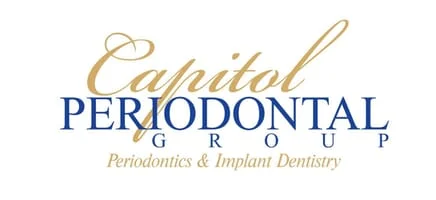Women are especially susceptible to periodontal disease at various stages of life. Hormonal changes such as puberty, menstruation, pregnancy and menopause can affect the blood supply to the gums, and response to irritants from plaque may be exaggerated. During these times a woman's body experiences hormonal changes that can make the gums sensitive and increase the risks for gum disease. The condition worsens if patients are already prone to periodontal disease. We at Capitol Periodontal Group can help and guide our patients understand their unique dental and periodontal needs that can help promote good dental habits that keep teeth and gums healthy and a smile lasting a lifetime.
The Teen-Age Years
As girls reach puberty, production of the sex hormones progesterone and estrogen increases. This hormonal increase can exaggerate the way the gum tissues react to the irritants in plaque. Gums may become red, tender, swollen and likely to bleed easily when chewing, or brushing teeth. The condition can be difficult to manage when undergoing orthodontic treatment with braces.
After the early teen years, there is typically less inflammation and bleeding. At Capitol Periodontal Group, we make sure that our patients get the adequate training on how to brush their teeth thoroughly and clean between teeth daily with floss or interdental cleaners. We guide and recommend our patients to choose oral care products, including antimicrobial mouth rinses that are effective and safe and are endorsed by the American Dental Association Seal of Acceptance.
^ back to top
Monthly Cycle
During menstruation, many women notice changes in their mouth, including swollen gums, lesions, canker sores and swollen salivary glands. For women who have problems with plaque or pockets, there may be bleeding gums for a few days before the cycle begins. These symptoms should not be ignored. As we diagnose these problems, we may prescribe special cleanings, gum treatment or topical anesthetics to ease any discomfort.
Pregnancy
During pregnancy, hormone levels rise considerably. Gingivitis, especially common during the second to eight months of pregnancy, may cause red, puffy or tender gums that tend to bleed when brushing the teeth. This sensitivity is an exaggerated response to plaque and is caused by an increased level of progesterone in the system.
Research has found that women with periodontal disease may be at a higher risk for delivering pre-term, low birth weight (PLBW) infants. A recent study indicated that pregnant women with periodontal disease were more likely to deliver a pre-term (before the 37th week) PLBW infant. Scientists suspect that as a bacterial infection, periodontal disease triggers an increase in PGE (prostaglandin) and TNF (tumor necrosis factor) at molecular levels, thereby inducing premature labor. Complications associated with PLBW include extended hospital stays, follow-up treatment and potential long-term problems for the child.
We, at Capitol Periodontal Group communicate with our patients' physicians and general dentists, and we also may recommend more frequent cleanings during the second trimester or early third trimester to help avoid problems.
^ back to top
Oral Contraceptives
One of the most common problems for women who take oral contraceptives, or birth control pills, is inflamed gums. The hormone in oral contraceptives increases progesterone levels in the system. Prolonged use of birth control pills may cause gums to turn red, bleed and swell in response to any local irritants in the mouth, such as food or plaque. Good oral hygiene is especially important when taking birth control pills.
^ back to top
Reaching Menopause
A number of physical changes occur when a woman reaches menopause, including some that occur in the mouth. These may include burning sensation, altered taste sensations (salty, peppery or sour), a decrease in saliva flow that can result in dry mouth, and greater sensitivity to hot and cold foods or drinks. At Capitol Periodontal Group, our doctors may diagnose oral problems related to menopause and communicate these signs and symptoms with our patients' physicians, who may then recommend hormone replacement therapy. To insure comfort during this stage of life, we may prescribe saliva substitutes to reduce mouth dryness and vitamin C and B complexes that may be effective and helpful in keeping a healthy oral condition.




